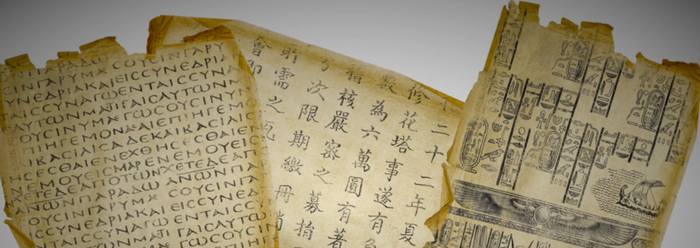"Where is the wise? where is the scribe? where is the disputer of this world? hath not God made foolish the wisdom of this world?" (I Corinthians 1:20)
One of the strongest evidences for the global flood which annihilated all people on Earth except for Noah and his family, has been the ubiquitous presence of flood legends in the folklore of people groups from around the world. And the stories are all so similar. Local geography and cultural aspects may be present but they all seem to be telling the same story.
Over the years I have collected more than 200 of these stories, originally reported by various missionaries, anthropologists, and ethnologists.
While the differences are not always trivial, the common essence of the stories is instructive as compiled below:
- Is there a favored family? 88%
- Were they forewarned? 66%
- Is flood due to wickedness of man? 66%
- Is catastrophe only a flood? 95%
- Was flood global? 95%
- Is survival due to a boat? 70%
- Were animals also saved? 67%
- Did animals play any part? 73%
- Did survivors land on a mountain? 57%
- Was the geography local? 82%
- Were birds sent out? 35%
- Was the rainbow mentioned? 7%
- Did survivors offer a sacrifice? 13%
- Were specifically eight persons saved? 9%
Putting them all back together, the story would read something like this:
Once there was a worldwide flood, sent by God to judge the wickedness of man. But there was one righteous family which was forewarned of the coming flood. They built a boat on which they survived the flood along with the animals. As the flood ended, their boat landed on a high mountain from which they descended and repopulated the whole earth.
Of course the story sounds much like the Biblical story of the great flood of Noah's day. The most similar accounts are typically from middle eastern cultures, but surprisingly similar legends are found in South America and the Pacific Islands and elsewhere. None of these stories contains the beauty, clarity, and believable detail given in the Bible, but each is meaningful to their own culture.
Anthropologists will tell you that a myth is often the faded memory of a real event. Details may have been added, lost, or obscured in the telling and retelling, but the kernel of truth remains. When two separate cultures have the same "myth" in their body of folklore, their ancestors must have either experienced the same event, or they both descended from a common ancestral source which itself experienced the event.
The only credible way to understand the widespread, similar flood legends is to recognize that all people living today, even though separated geographically, linguistically, and culturally, have descended from the few real people who survived a real global flood, on a real boat which eventually landed on a real mountain. Their descendants now fill the globe, never to forget the real event.
But, of course, this is not the view of most modern scholars. They prefer to believe that something in our commonly evolved psyche forces each culture to invent the same imaginary flood legend with no basis in real history. Instead of scholarship, this is "willful ignorance" of the fact that "the world that then was, being overflowed with water, perished" (II Peter 3:5,6).




